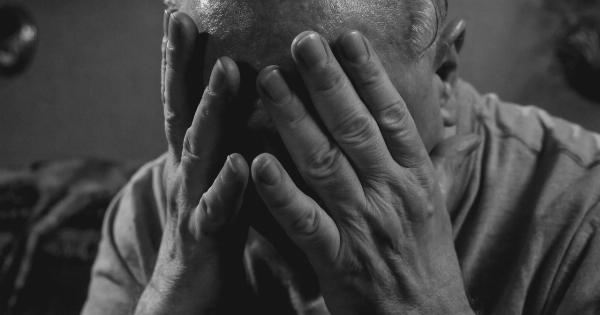Testosterone deficiency, also known as hypogonadism, is a medical condition characterized by lower than normal levels of testosterone in the bloodstream. Testosterone is a vital hormone responsible for various bodily functions in both men and women.
It plays a crucial role in the development of male characteristics during puberty and is involved in maintaining bone density, muscle mass, libido, and overall well-being.
Causes of Testosterone Deficiency
There can be several causes of testosterone deficiency, including:.
- Age: As men age, their testosterone levels gradually decline. This natural decline is known as age-related testosterone decline or andropause.
- Medical Conditions: Certain medical conditions, such as hypogonadism, Klinefelter syndrome, and pituitary disorders, can affect testosterone production.
- Injury or Infection: Injury or infection of the testicles can disrupt testosterone production.
- Medications: Some medications, such as opioids and steroids, can interfere with testosterone production.
- Lifestyle Factors: Factors like obesity, excessive alcohol consumption, and chronic stress can also contribute to testosterone deficiency.
Signs and Symptoms
The signs and symptoms of testosterone deficiency can vary from person to person. Some common indications include:.
- Decreased Libido: One of the primary symptoms of testosterone deficiency is a reduced interest in sexual activity.
- Erectile Dysfunction: Testosterone plays a significant role in achieving and maintaining an erection. Low testosterone levels can lead to difficulties in achieving or sustaining erections.
- Fatigue: Testosterone is important for maintaining energy levels. Reduced levels of testosterone can result in persistent fatigue and low stamina.
- Loss of Muscle Mass: Testosterone is essential for building and maintaining muscle mass. Testosterone deficiency can lead to muscle loss, weakness, and decreased physical performance.
- Increased Body Fat: Low testosterone levels can cause an increase in body fat, particularly in the abdominal area.
- Mood Changes: Testosterone deficiency may contribute to mood changes, including irritability, depression, and decreased motivation.
Diagnosis of Testosterone Deficiency
If you suspect you have testosterone deficiency, it is important to consult a healthcare provider who specializes in hormone disorders. They will perform a thorough evaluation, which may include:.
- Medical History: Your doctor will inquire about your symptoms and medical history to identify possible causes of testosterone deficiency.
- Physical Examination: A physical examination will help your doctor assess any visible signs of testosterone deficiency, such as changes in body composition or genital abnormalities.
- Testosterone Testing: Blood tests will be conducted to measure your testosterone levels. Typically, two separate tests are performed to confirm the diagnosis.
Treatment Options
Once testosterone deficiency is diagnosed, various treatment options are available. The choice of treatment depends on the underlying cause, overall health, and individual preferences. Some common treatment options include:.
- Testosterone Replacement Therapy (TRT): TRT involves administering testosterone through gels, patches, injections, or pellets to restore testosterone levels to normal.
- Lifestyle Changes: In some cases, making lifestyle changes such as losing weight, exercising regularly, reducing stress, and getting adequate sleep can help improve testosterone levels.
- Medication Adjustment: If medications are causing testosterone deficiency, your doctor may adjust the dosage or switch to alternative medications.
- Counseling: Psychological counseling or therapy may be recommended to address mood changes or psychological effects of testosterone deficiency.
Prevention and Lifestyle Tips
While some causes of testosterone deficiency are beyond our control, there are certain preventive measures and lifestyle tips that may help maintain healthy testosterone levels:.
- Maintain a Healthy Weight: Obesity can contribute to testosterone deficiency. Managing weight through a balanced diet and regular exercise can help preserve hormone balance.
- Regular Exercise: Engaging in physical activity, resistance training, and strength exercises can promote testosterone production.
- Manage Stress Levels: Chronic stress can negatively impact hormone levels. Finding healthy coping mechanisms and practicing stress management techniques, such as meditation or yoga, may be beneficial.
- Adequate Sleep: Sufficient sleep is crucial for overall hormonal balance and well-being. Aim for 7-9 hours of quality sleep each night.
- Limit Alcohol Consumption: Excessive alcohol intake can disrupt hormone production and impair testosterone levels.
- Quit Smoking: Smoking has been linked to testosterone deficiency. Quitting smoking can have numerous health benefits, including improved testosterone levels.
Conclusion
Testosterone deficiency can have a significant impact on various aspects of physical and mental health. Recognizing the signs and symptoms and seeking appropriate medical attention is crucial for diagnosis and treatment.
With advances in medical science, effective treatment options are available to manage testosterone deficiency and restore optimal hormone levels, leading to improved quality of life and overall well-being.































